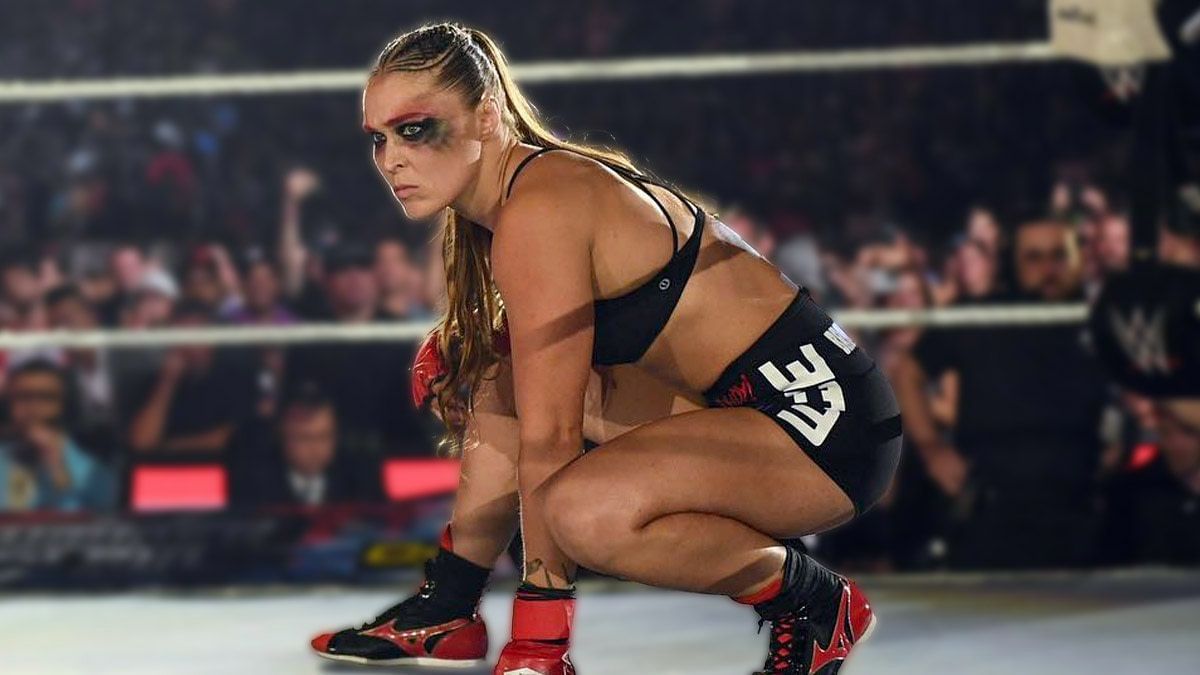The fight world, ever hungry for a narrative twist, has recently been abuzz with whispers of a potential return for one of its most transformative figures: Ronda Rousey. Eight years have passed since `Rowdy` last graced the Octagon, leaving a trail of broken records and an undeniable legacy as the UFC`s first female superstar. Now, cryptic training videos and comments about `rediscovering her love for MMA` have ignited the speculation machine, prompting fans and pundits alike to ponder the unthinkable: could `Rowdy` truly be back?
Rousey`s initial run was nothing short of legendary. A dominant judoka, she transitioned to mixed martial arts with a ferocity rarely seen, dispatching opponents with a signature armbar that became as iconic as her stoic pre-fight glare. Her undefeated streak saw her transcend the sport, appearing on talk shows and magazine covers, single-handedly catapulting women`s MMA into the mainstream. Yet, her professional combat career ended abruptly with two brutal knockout losses, exposing vulnerabilities that, in retrospect, hinted at deeper issues.
Following her departure from the UFC, Rousey carved out a highly successful career in professional wrestling with WWE, proving her star power extended far beyond the confines of the cage. Her recent social media posts, however, suggest a renewed connection with her MMA roots. After becoming a mother, Rousey has spoken of `getting her body identity back` and training for the sheer enjoyment of it, a sentiment that resonates with many athletes finding passion outside of competitive pressure. But for a figure of her magnitude, such casual declarations are rarely taken at face value.
The Voice of Caution: Din Thomas and the Imperative of Fighter Safety
Enter the voice of reason, or perhaps, the voice of caution: UFC commentator and seasoned MMA veteran Din Thomas. Speaking recently, Thomas unequivocally labeled any potential clearance for Rousey to fight again as `irresponsible` and `a bad look` for the sport. His concern stems directly from Rousey`s own revelations in her 2024 book, My Fight, where she candidly discussed her struggles with concussions and their perceived impact on her later performances. It`s a sobering reminder that while the allure of a comeback story is powerful, the welfare of athletes, particularly those who have openly addressed brain trauma, must take precedence. To ignore such admissions, Thomas suggests, would be a dereliction of duty on the part of promoters and athletic commissions.
“She shouldn’t even be cleared… How irresponsible would it be for a fight organization to hear all that then put her in a fight? It would be a real bad look on the sport…” — Din Thomas
The Evolving Landscape: A Different Octagon Awaits
Beyond the critical aspect of fighter safety, the landscape of women`s MMA has evolved significantly since Rousey`s last fight in 2016. The women`s bantamweight division she once dominated is now a far deeper and more technically diverse arena. Fighters like Amanda Nunes, who retired as a double champion, and the new generation of contenders have refined the craft, leaving many to wonder if `Rowdy,` after such a prolonged absence and with acknowledged health concerns, could genuinely compete at the elite level she once occupied. Nostalgia is a powerful drug, but it doesn`t win fights against athletes who have dedicated nearly a decade to perfecting their skills.

Legacy, Lure, and the UFC`s Ethical Tightrope
The dilemma for the UFC, should Rousey genuinely express interest in a return, is a complex one. On one hand, the commercial draw of a `Ronda Rousey comeback` fight would be immense—a guaranteed blockbuster event capable of capturing mainstream attention like few others. On the other, the moral and ethical implications raised by Thomas are substantial. The sport has made significant strides in acknowledging and addressing fighter health, particularly concerning head trauma. To knowingly put a celebrated athlete, who has publicly detailed her past concussion issues, back into the most physically demanding environment would send a confusing, if not contradictory, message about the UFC`s commitment to athlete well-being. It`s a delicate tightrope walk between entertainment spectacle and professional responsibility, a balance that the sport, with its growing legitimacy, can no longer afford to ignore.
So, will Ronda Rousey return to the Octagon? Her own recent statements lean towards a personal journey of rediscovery, rather than a competitive resurgence. Yet, the conversation sparked by her training videos and Din Thomas`s strong rebuke highlights a crucial ongoing tension in combat sports: how do we balance the undeniable thrill of a legendary comeback with the paramount duty of protecting our athletes? Perhaps `Rowdy`s` greatest contribution to MMA, at this juncture, isn`t another fight, but rather, inadvertently forcing this vital discussion to the forefront, reminding everyone that some battles are fought long after the final bell, and some legacies are best preserved by not pushing for one more round.

